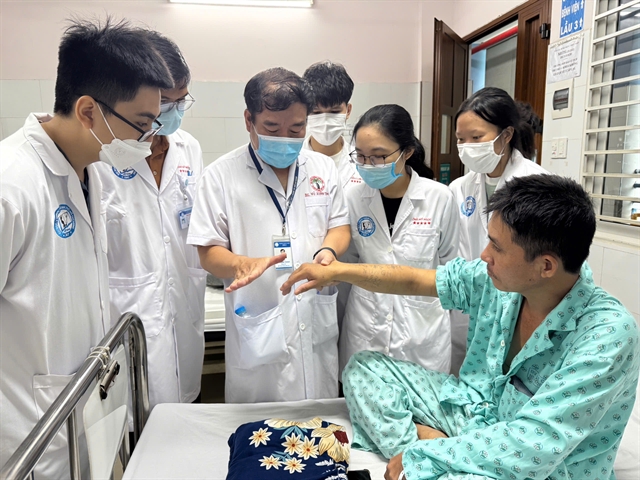 Opinion
Opinion

Nguyễn Thanh Phong, director general of the Department of Food Safety under the Ministry of Health, talks to Vietnam News Agency about positive changes in food safety management in Việt Nam
 |
| Nguyễn Thanh Phong. — Photo vfa.gov.vn |
Nguyễn Thanh Phong, director general of the Department of Food Safety under the Ministry of Health, talks to Vietnam News Agency about positive changes in food safety management.
Decree No.15/2018/NĐ-CP on food safety management came into force more than a month ago. What achievements have been achieved so far?
The Decree has received high appraisal from enterprises. They have to take their legal responsibility for the safety of their products instead of submitting reports to concern government agencies for their accreditations. However, under the Decree 15, certain products are still need to be sent to the Ministry of Health or the Provincial Health Department for verification. These products include supplement health foods; food supplememts or nutrition food for children under 36 months old.
Under the new Decree, Government agencies will undertake the role of post-checks while heavy fines /sanctions will be given to any fraudulent cases if they are detected.
The advantage point of the Decree 15 is that enterprises are given more autonomy rights to do business if they act in accordance to the law.
According to the Central Institution for Economic Management (CIEM), more than 95 percent of food products will no longer need safety food stamps from functional agencies. In other words, it will save about 1.8 million of working days and more than VNĐ600 billion (US$26.5 million) in a year.
Are there any challenges for the enterprises?
The enterprises have faced quite a few challenges. The most challenging is that until now, quite a few Provincial/City People’s Committees have not dispatched official letters asking local functional agencies to receive enterprises’ dossiers declaring their food safety. The work has still been done by the Sub-department of Food Safety.
Many enterprises have wondered that after submitting their dossiers to functional Government agencies, should these agencies notify them to say they have received their papers? The enterprises don’t have to worry. After completing all the required paper work, the enterprises can start their business and it is the task the functional agencies to perform their assigned tasks. What the enterprises need to do now is to keep their dossiers and take notes of the date and time they submitted their dossiers as references for post checks if it is required in the future.
However, the most important point is that all enterprises must uphold law and order in their products regarding the issue of food safety declaration.
Will you please talk a bit more about the switch from pre-check to post check?
Currently, the MOH has developed an inspection plan for the imported food on sale in the market. In addition, the MOH has also petitioned on the need to apply strong administrative penalties on cases violating the law on food safety. Heavy penalties should be considered as the last resort to deter future violations.
In addition, the MOH has also proposed that in a severe case of food poisoning, a term of 20 years imprisonment could be applied in the Article 317 of the Criminal Code.
Worthy of note is that Article 13 has further expanded cases that will enjoy checks exemption for food imported from abroad, unless cases are suspected of violating the Vietnamese Food Safety Law. Under the new law, the Food Safety Certificate will be valid throughout the product’s life cycle.
Under the Decree, any product, raw production materials which are imported for the only purpose of production, processing for export or for internal production within the enterprise or individuals, they will not be subjected for inspection. However, in such a case, the enterprises are prohibited to sell their raw materials in the market._VNS




